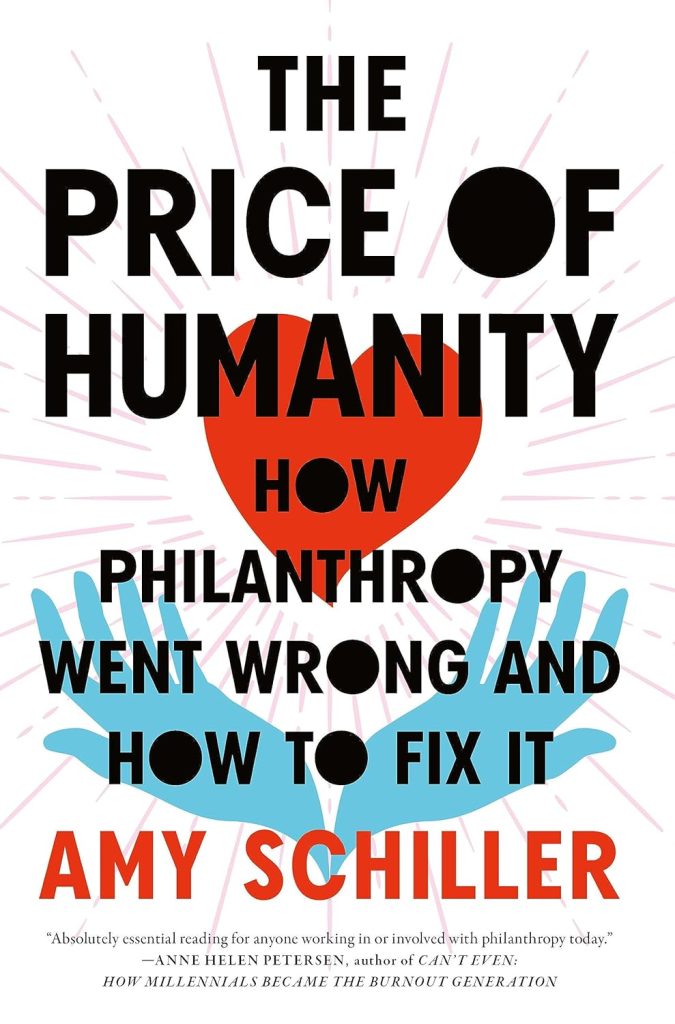Join Amy Schiller for “The Price of Humanity” book discussion.
BOOK LAUNCH DETAILS
2/2/2024
POLITICS AND PROSE
5015 Connecticut Avenue NW
Washington, DC 20008
About the Author:
Amy Schiller is a journalist, academic, and consultant. She is currently a postdoctoral fellow at Dartmouth College in the Society of Fellows. She previously held fellowships at Stanford University and Bard College. Her writing has been published in The Atlantic, The Washington Post, The Nation, and The Daily Beast and has been quoted as an expert on philanthropy in The New York Times, The New Yorker, Bloomberg, and Slate. She has also had a nearly 15-year career in major gift fundraising consulting. She has worked in a wide range of settings, from international humanitarian nonprofits to a major New York City dance company.

About the Book:
An attempt to rescue philanthropy from its progressive decline into vanity projects that drive wealth inequality, so that it may support human flourishing as originally intended.
The word “philanthropy” today makes people think big money—Bill and Melinda Gates, Warren Buffet, and Andrew Carnegie come to mind. The scope of suffering in the world seems to demand an industry of giving, and yet for all the billions that are dispensed, the wealthy never seem to lose any of their money and nothing seems to change.
Journalist, academic and consultant Amy Schiller shows how we get out of this stalemate by evaluating the history of philanthropy from the ideas of St. Augustine to the work of Lebron James. She argues philanthropy’s contemporary tendency to maintain obscene inequality and reduce every cause to dehumanizing technocratic terms is unacceptable, while maintaining an optimism about the soul and potential of philanthropy in principle.
For philanthropy to get back to its literal roots—the love of humanity—Schiller argues that philanthropy can no longer be premised around basic survival. Public institutions must assume that burden so that philanthropy can shift its focus to initiatives that allow us to flourish into happier, more fulfilled human beings. Philanthropy has to get out of the business of saving lives if we are to save humanity.














